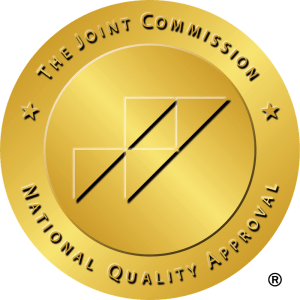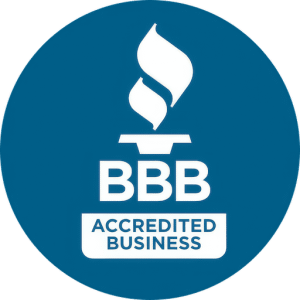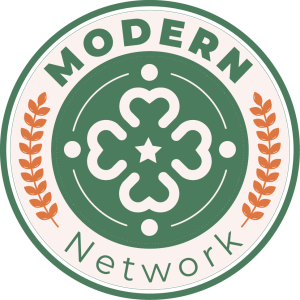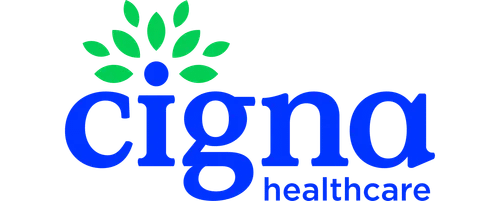Evidence-based trauma therapy for adolescents 12–17
Teen PTSD Treatment
We Accept Insurance
A safe space to process trauma and feel secure again
Use evidence-based therapy to heal from the past
Regain a sense of control and build a hopeful future
After a traumatic event, you expect your child to be shaken. But when echoes of fear continue to disrupt their life, it may be post-traumatic stress disorder (PTSD), a prolonged stress response that has stolen your teen’s sense of safety. While many teens naturally recover from trauma, some remain stuck in fear. Left unaddressed, PTSD symptoms can cast a long shadow, but with the right help, your teen can heal and move forward.
When the past won’t stay in the past: Signs of teen PTSD
After a traumatic experience, a teen’s world can feel fundamentally altered. Those who develop PTSD aren’t just remembering a bad event; they can’t escape it. Their nervous system remains on high alert, driving seemingly irrational behaviors that are desperate attempts to manage overwhelming stress. Because these symptoms rarely improve on their own, recognizing them is critical for getting your teen help.
PTSD looks different in everyone, but it often shows up in three distinct ways:
1. Re-experiencing the trauma
- Unwanted memories and flashbacks of the traumatic event.
- Nightmares related to the trauma that disrupt sleep.
- Physical reactions, such as heart palpitations, sweating, or panic, when “triggered” by people, places, or things that remind them of the event.
2. Avoidance and numbness
- Avoiding reminders, including people and places associated with the trauma.
- Emotional numbness, such as withdrawing or seeming unable to feel positive emotions.
- Loss of interest in hobbies, friendships, or activities they once cared about.
3. Hypervigilance and reactivity
- Being easily startled, such as extreme reactions to loud noises or sudden movements.
- Constant “on-guard” behavior, such as scanning surroundings for danger.
- Irritability and angry outbursts that seem to come from nowhere.
- Difficulty concentrating on schoolwork or other tasks.
Understanding what leads to PTSD in teens
A common misconception is that PTSD results from a single, catastrophic event. But any experience that overwhelms a teen’s ability to cope can be traumatic. What matters is how the event impacted your child’s sense of safety. Common traumatic events that can lead to PTSD in teens include
- Serious accidents (like a car crash)
- Physical or sexual assault
- Severe bullying, whether in-person or online
- A major health crisis or invasive medical procedure
- The sudden death of a loved one
- Witnessing violence
- Natural disasters
- Emotional abuse or neglect
Why do some teens develop PTSD and others don’t?
Two teens can go through the same event, and one may recover while the other develops PTSD. Certain factors can make a teen more vulnerable to a prolonged trauma response, but it’s important to understand that these are factors, not faults.
- The nature of the trauma: Events that are prolonged, repeated, or involve physical harm often have a stronger impact.
- A lack of post-event support: Feeling alone, dismissed, or unsupported after a traumatic event can complicate recovery.
- Pre-existing mental health challenges: A teen already struggling with anxiety or depression may have fewer emotional reserves to cope with a traumatic experience.
- A history of trauma: Multiple traumatic experiences can have a cumulative effect, making each subsequent event harder to process.
Why specialized teen PTSD treatment is so crucial
When a teen’s trauma is left untreated, it doesn’t just fade away—it can color every aspect of their life. The constant state of high alert and emotional avoidance caused by PTSD is exhausting, making it incredibly difficult to focus in school, maintain friendships, or even feel safe at home.
This is why PTSD often co-occurs with other serious challenges. According to the National Center for PTSD, teens with PTSD are at a higher risk for developing depression, severe anxiety, substance use, and self-harming behaviors. Specialized, trauma-informed treatment does more than address the past; it prevents a cascade of future mental health crises and equips your child to build a healthy, hopeful future.
Healing from trauma at Avery’s House
Your teen isn’t defined by their trauma. At Avery’s House, we provide a safe, comfortable sanctuary for healing. Our approach to treating PTSD is grounded in a core belief: to heal, a teen must first feel safe. We specialize in trauma-informed care that goes beyond managing symptoms to address the root of PTSD pain.
We’ll create your teen’s personalized treatment plan in collaboration with your family, tailoring it to their unique history, strengths, and goals. We use a variety of evidence-based methods designed to help your teen process trauma safely:
- Processing traumatic memories: We use proven therapies like eye movement desensitization and reprocessing (EMDR) and the internal family systems (IFS) model. These gently help teens reprocess traumatic memories so they are no longer overwhelming.
- Changing negative thought patterns: Cognitive behavioral therapy (CBT) is a practical tool that helps teens identify and challenge the negative beliefs that often develop after a trauma.
- Building coping skills: We equip your teen with real-world skills for managing anxiety and stress through experiential therapies and mindfulness techniques.
- Medication as a support: For some teens, medication can reduce the severity of symptoms, allowing them to engage more fully in therapy. Our medical team will carefully assess if this may be beneficial for your child.
The journey back to themselves: Benefits of healing at Avery’s House
Healing from PTSD is about helping your teen reclaim the life and future that trauma tried to take away. In our warm, homelike setting, which feels more like a sanctuary than a hospital, your teen will find the safety and support to begin this journey.
Here are some of the profound changes you can expect:
From surviving to thriving: the journey back to themselves begins at Avery’s House.
Feel safe in their own body again: We guide your teen in quieting their high alert state so they can feel safe, calm, and peaceful.
Process, not just relive, trauma: Instead of being haunted by the past, your teen will learn to process traumatic memories in a safe, therapeutic way.
Find a hopeful future: As the trauma loosens its grip, your teen will rediscover interests, passions, and a sense of purpose. They’ll look to the future with confidence.
Rebuild trust and family bonds: Trauma impacts the whole family. Through dedicated family therapy, we help you understand your child’s experience, improve communication, and rebuild the trusting, supportive relationships essential for healing.
Gain a lifelong resilience toolkit: Your teen will leave with practical, healthy coping strategies to manage stress and navigate life’s future challenges with strength.
“The rehab [at Avery’s House] was really good. It was welcoming, accepting, and they really do care about us. It was literally a house, so it didn’t feel like a hospital or treatment center at all.”
How you can be their anchor: Supporting a teen with PTSD
When your child is struggling with PTSD, your presence is their anchor in a stormy sea. Your role is to be their safest space. Providing unwavering support, patience, and predictability can make a world of difference.
- Create a safe space for all emotions: Talking is important, but for a teen with PTSD, it can feel threatening. Let them know you’re there to listen without judgment when they’re ready. Sit with them in comfortable silence. The goal is to be a calm, steady presence, not to force sharing.
- Help them regulate their nervous system: Instead of telling them to relax, help them do it. Practice slow, deep breathing with them. Suggest a weighted blanket, listen to calming music together, or offer a hug. Your calm helps make them feel calm.
- Focus on rebuilding safety and control: Trauma robs a teen of their sense of control. Help them recover it in small, predictable ways. Don’t push them into activities, but gently offer choices. Giving them control over small, everyday decisions helps rebuild their sense of agency.
- Maintain predictable routines: Predictability creates safety. As much as possible, stick to consistent wake, meal, and bed times. A simple, reliable routine provides a sense of stability when their internal world feels chaotic.
Affordable OCD help for teens
We partner with major Arizona insurers to minimize out-of-pocket costs. We can help you verify your coverage now.

We’re in-network with Blue Cross Blue Shield
We tailor treatment plans to reflect each teen’s strengths, challenges, and goals. The following are common services:
- Individual sessions
- Dialectical behavior therapy (DBT)
- Cognitive behavioral therapy (CBT)
- Art therapy
- Acceptance and commitment therapy (ACT)
- Pharmacotherapy
- Family therapy
- Community-based activities
- Music therapy
- Case management
- Medication management
- Academic support











